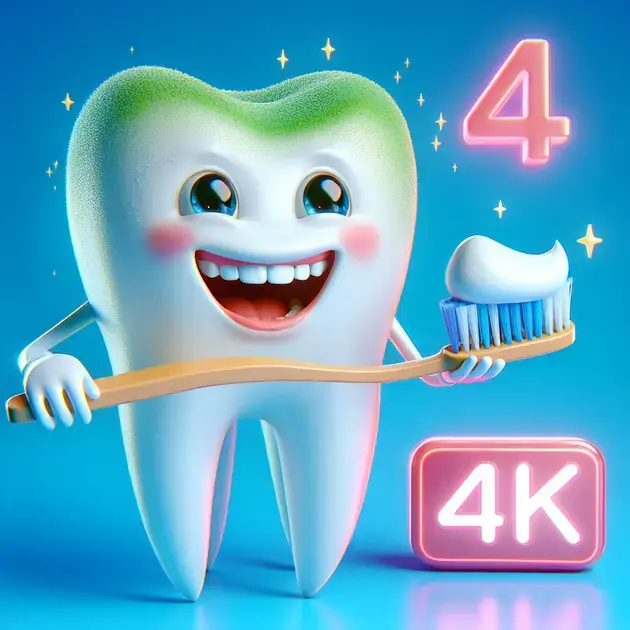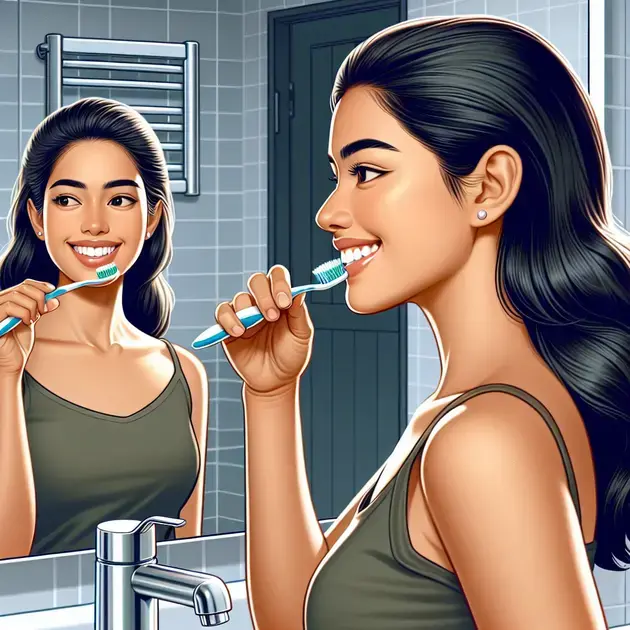When it comes to maintaining good oral hygiene, knowing how to properly brush your teeth is essential. In this step-by-step guide, we’ll walk you through the best techniques to ensure your oral health is in top shape.
Recent studies have shown that incorrect brushing techniques can lead to plaque buildup and gum disease. By following the correct steps outlined in this guide, you can effectively remove plaque and prevent dental issues in the future.

**
Proper Brushing Technique Explained**
Dental hygiene is a crucial aspect of overall health, and proper brushing technique plays a significant role in maintaining healthy teeth and gums. Brushing your teeth correctly helps prevent issues such as cavities, gum disease, and bad breath. Here is a step-by-step guide to the proper brushing technique:
Step 1: Choose the Right Toothbrush
Start by selecting a soft-bristled toothbrush that can reach all areas of your mouth. Electric toothbrushes are also a good option as they can provide more thorough cleaning.
Step 2: Use Fluoride Toothpaste
Apply a pea-sized amount of fluoride toothpaste to your toothbrush. Fluoride helps strengthen the tooth enamel and prevent tooth decay.
Step 3: Brush at a 45-Degree Angle
Hold your toothbrush at a 45-degree angle to the gums and use gentle circular motions to clean the front, back, and top surfaces of each tooth.
Step 4: Don’t Forget the Tongue
After brushing your teeth, gently brush your tongue to remove bacteria and freshen your breath.
Step 5: Rinse Thoroughly
After brushing for two minutes, rinse your mouth thoroughly with water. Avoid swallowing the toothpaste.
**
Importance of Correct Brushing Habits**
The importance of maintaining correct brushing habits cannot be overstated when it comes to oral health. Brushing your teeth properly at least twice a day can prevent a multitude of dental problems and save you from costly treatments in the future. Here’s why correct brushing habits are essential:
Prevention of Cavities
Brushing removes food particles and plaque from the teeth, preventing the formation of cavities. Cavities can lead to toothaches, infections, and even tooth loss if left untreated.
Gum Disease Prevention
Proper brushing technique helps prevent gum disease by removing bacteria that can cause inflammation and infection of the gums. Gum disease can lead to receding gums and even tooth loss.
Fresh Breath
Brushing your teeth correctly helps remove bacteria that cause bad breath, keeping your mouth feeling fresh and clean throughout the day.
Overall Health Benefits
Good oral hygiene is linked to overall health, with studies showing that gum disease can contribute to various systemic conditions such as heart disease and diabetes.
Enhanced Confidence
Maintaining correct brushing habits results in a healthy, beautiful smile, boosting your self-confidence and allowing you to interact with others without worrying about your oral health.
**
Preventing Dental Issues with Proper Brushing**
One of the most effective ways to prevent dental issues is by practicing proper brushing techniques consistently. By incorporating the following tips into your daily routine, you can maintain a healthy smile and avoid common dental problems:
Brush Twice a Day
Brush your teeth at least twice a day, in the morning and before bed, to remove plaque and bacteria that can cause decay.
Use Proper Brushing Technique
Follow the step-by-step guide mentioned earlier to ensure you are brushing your teeth correctly and effectively.
Replace Your Toothbrush Regularly
Replace your toothbrush every three to four months or sooner if the bristles are frayed. A worn-out toothbrush is less effective at cleaning your teeth.
Visit Your Dentist Regularly
Regular dental check-ups are essential for maintaining oral health. Your dentist can detect any early signs of dental issues and provide appropriate treatment.
Pair Brushing with Flossing
Flossing complements brushing by removing plaque and food particles from between the teeth and along the gumline. Make flossing a part of your daily oral hygiene routine.

Importance of Regular Dental Check-Ups
Regular dental check-ups are an essential part of maintaining good oral health. By visiting your dentist on a routine basis, you can prevent potential dental issues from escalating into more serious problems. During these check-ups, your dentist will examine your teeth and gums, looking for any signs of decay, gum disease, or other oral health issues. Early detection of these problems can help you avoid the need for more extensive and costly treatments down the line, saving you both time and money.
Furthermore, regular dental check-ups can also help prevent bad breath, cavities, and tooth loss. Your dentist may recommend professional cleanings to remove plaque and tartar buildup, which can contribute to these issues. Additionally, by maintaining good oral hygiene habits at home and following your dentist’s advice, you can keep your teeth and gums healthy for years to come.
Overall, scheduling regular dental check-ups is a proactive way to take care of your oral health and prevent potential dental problems. By investing in preventative care, you can enjoy a brighter smile and better overall health in the long run.
Healthy Habits for a Brighter Smile
Maintaining healthy habits is crucial for achieving and maintaining a brighter smile. One of the most important habits you can incorporate into your daily routine is brushing your teeth at least twice a day with a fluoride toothpaste. This helps remove plaque and food debris, preventing cavities and gum disease.
In addition to brushing, it’s essential to floss daily to remove plaque from between your teeth and along the gumline. This helps prevent tooth decay and gum inflammation. You should also consider using an antiseptic mouthwash to kill bacteria and freshen your breath.
Another healthy habit for a brighter smile is to eat a balanced diet rich in fruits, vegetables, and lean proteins. Avoiding sugary and acidic foods can help prevent tooth decay and enamel erosion. Drinking plenty of water throughout the day also helps wash away food particles and keeps your mouth hydrated.
Lastly, regular dental check-ups and professional cleanings are essential for maintaining optimal oral health and a brighter smile. Your dentist can identify any issues early on and provide necessary treatments to keep your smile looking its best.
Exploring Different Toothpaste Options
When it comes to choosing the right toothpaste for your oral health needs, there are several options to consider. One popular choice is fluoride toothpaste, which helps strengthen enamel and prevent tooth decay. Fluoride is especially beneficial for children and adults at risk of cavities.
If you have sensitive teeth, you may want to opt for a toothpaste formulated for sensitive teeth. These toothpastes contain ingredients that help desensitize nerve endings and reduce discomfort while brushing. They can also help protect against enamel erosion.
For those looking for a natural alternative, there are fluoride-free toothpaste options available. These toothpastes often contain natural ingredients like baking soda, charcoal, or essential oils to clean and whiten teeth. However, it’s essential to ensure that the toothpaste still effectively fights cavities and plaque buildup.
Ultimately, the best toothpaste for you will depend on your specific oral health needs and preferences. It’s essential to consult with your dentist to determine the most suitable option for maintaining a healthy and bright smile.
Conclusion
In conclusion, regular dental check-ups play a crucial role in maintaining optimal oral health. By scheduling routine visits to your dentist, you can detect and address any potential dental issues early on, preventing them from developing into more serious problems. These check-ups help in the early identification of decay, gum disease, and other oral health issues, saving both time and money by avoiding complex treatments in the future.
Moreover, adopting healthy habits such as brushing teeth twice a day, flossing regularly, and maintaining a balanced diet contributes significantly to a brighter smile. These habits help in preventing cavities, gum inflammation, and enamel erosion, promoting overall oral health. Professional dental cleanings and regular check-ups are essential components of this routine, ensuring that any emerging problems are promptly managed for an enduring, healthy smile.
When it comes to choosing the right toothpaste, individuals must consider their specific oral health needs. Whether opting for fluoride toothpaste for enamel strength, sensitive toothpaste for comfort, or fluoride-free options for a natural approach, consulting with a dentist is crucial. By working closely with dental professionals, individuals can select the most suitable toothpaste for their oral care regimen, ensuring long-term oral health and a radiant smile.
